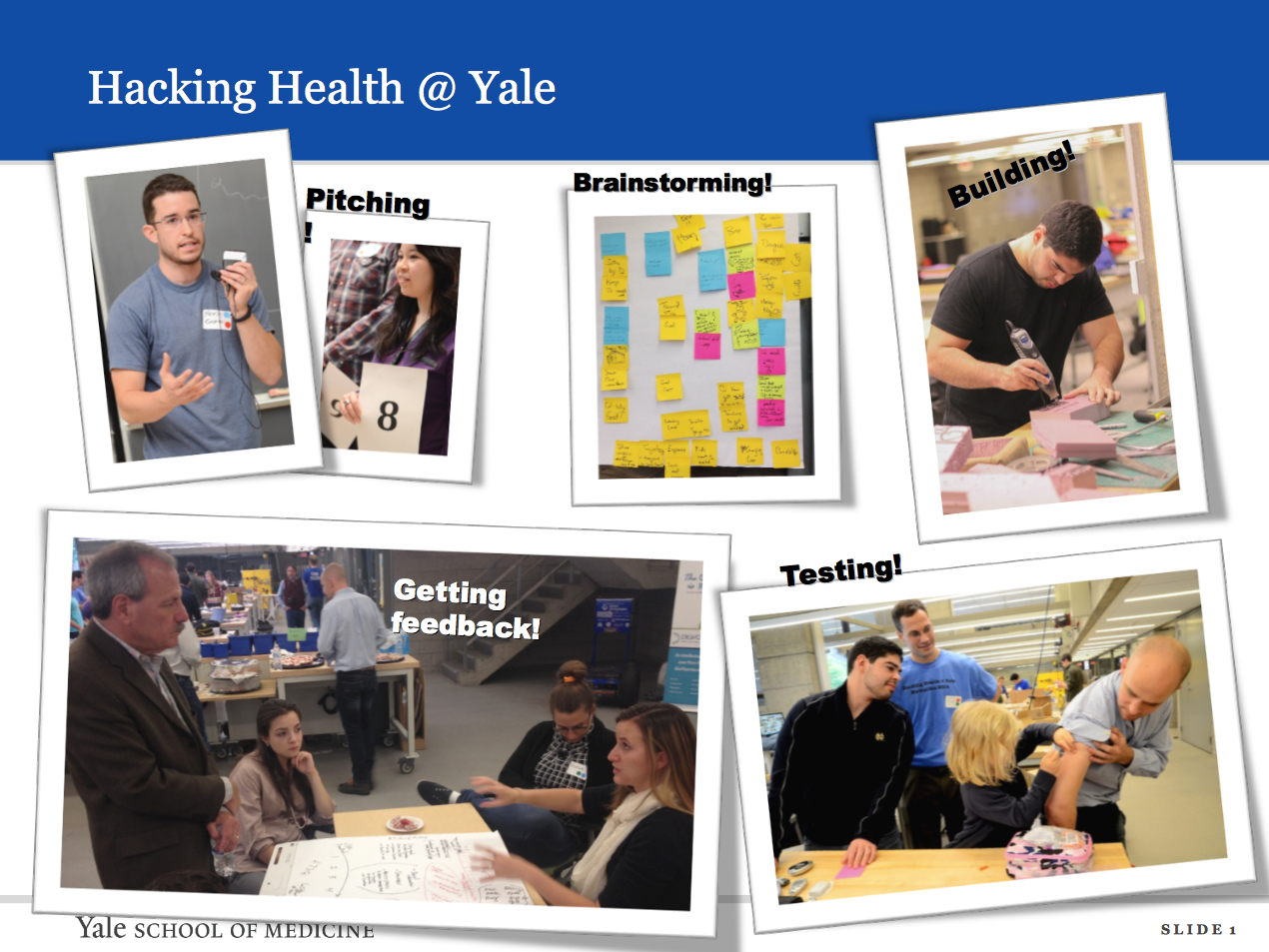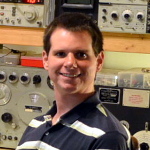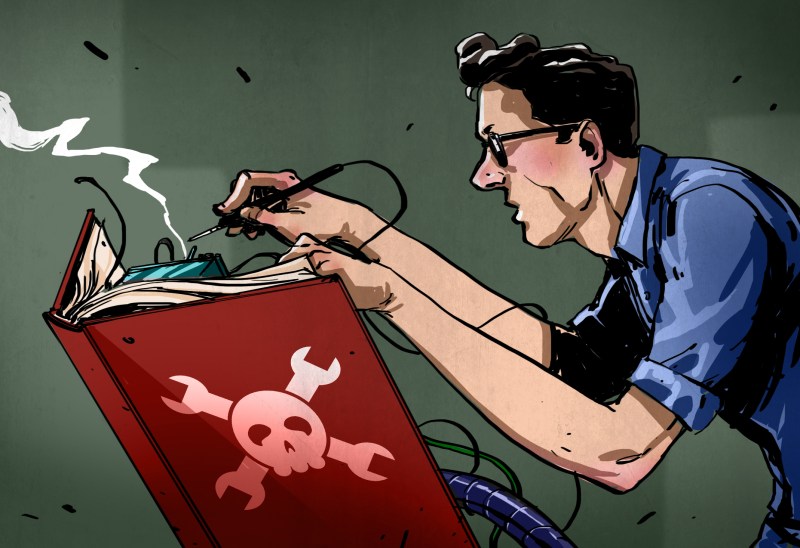Project-based learning, hackathons, and final projects for college courses are fulfilling a demand for hands-on technical learning that had previously fallen by the wayside during the internet/multi-media computer euphoria of the late 90’s. By getting back to building actual hardware yourself, Hackers are influencing the direction of education. In this post we will review some of this progress and seek your input for where we go next.
Hackathons to solve the world’s problems
Hackathons are now being run to solve many of the world’s problems. Recent examples include MIT Media Lab ‘make the breast pump not suck,’ and Yale’s ‘hacking heath’. Both of these hackathons were one-weekend sprints with the goal of developing rapid proof-of-concept prototype solutions.
In the case of Yale’s hackathon, the outcome was a 5 minute pitch for a new startup company. According to Hacking Health’s organizer, [Chris Loose], “the event generated extraordinary energy and a number of impressive product concepts. Many of the teams continue to drive their ideas ahead and are pursuing grant funding…”

Recently, [Tony Kim] ran MIT’s 6.002 Circuits and Electronics course as an EdX program in Mongolia. After learning the background theory students built many of the analog and digital circuits labs, created their own circuits and systems, and even built a coffee can radar which I’ve been told was on Mongolian National Television. One of the students from this effort became known as the Boy Genius of Ulan Bator.
Project-based learning
Project based learning is making a come back. Whether it is requiring a final project or basing a course entirely around a project.
Senior design or capstone courses have carried the torch on project-based learning for decades, in this every EE student (or ME or physics, or etc) completes a working prototype by the end of the semester. These courses are typically the very last thing you would take in your undergraduate program.
Electromagnetics was made more interesting by the MIT Coffee can radar course that I created with my fellow MIT Lincoln Laboratory colleagues. This course continues to be extremely popular, with numerous spin-offs and professional education (open enrollment to anyone) variants also including build a phased array and a search and track radar. This course has been used at Northrup Grumman Inc., internal to MITRE corp, MIT Lincoln Labs, and many others. It has also been used as a capstone project at numerous EE programs across the world. UC Davis has created a full semester course based on this work. For those more interested in radar experimentation than building the radar itself, a fully assembled kit is now being offered. This was the top-ranked MIT Professional Education course in 2011, demonstrating the demand for project-based learning in electromagnetics and radar.
Michigan State University’s undergraduate antennas course ECE405 offers a final project where students design then build antennas for an end-of-semester design challenge ranging from a fox hunt (.PPT warning) hidden transmitter, communicating with an amateur satellite, to maximizing the distance on a wi-fi link (.PPT warning).
Recently, the final project has been to develop a full communications system, including a phased array transmitter and an envelope detector receiver, where the group achieving the greatest power transfer across the communications link wins. This project is broken up into four phases:
- Characterize the microwave substrate using a transmission line resonator printed on the substrate,
- Design an envelope detector circuit
- Design a single patch antenna
- Design an antenna array
According to [Prof. Prem Chahal], “the projects make the lecture material much more interesting and the students are able to realize the importance of the material being covered.” Project-based learning can be more work for the prof, but not in this case according to [Prof. Chahal], “the instructor time is recovered during lecture hours (because) the lecture material becomes much more interesting and simpler to explain, and students actively participate during the lecture hour.”
Similarly, Harvard’s Introduction to Electrical Engineering ES 50 is providing an exciting experience for all involved where small groups of students make anything from a tri-corder to a Rubic’s cub solver as the final project.
This is just the beginning. In the near future I believe that final projects will be transforming what would otherwise be difficult or uninteresting courses. Who else is challenging students with final projects? Tell us about your school’s program in the comments below.
The transition between undergrad and your professional career
For those of us who did not have the chance to build much hardware during the undergrad EE experience, [Chris Gammel] offers an alternative option in the form of the short-course, Contextual Electronics. It involves just about everything needed to take small integrated products from idea, through circuit design, to PCB. The basic idea behind Contextual Electronics is that anyone can design and build electronics systems as long as they have the resources to fill knowledge gaps between a typical heavy-in-theory undergraduate electrical engineering degree and what you will actually be doing in your career. According to [Chris]:
This idea came from my own struggles. I learned so much ‘on the job’, even after going through a 4 year college curriculum at a top school.
He goes on to point out that the biggest issue with undergraduate programs today,
is that they are designed for making everyone into professors, starting everyone from first principles and solely focusing on the rigor in the mathematical side of learning. This is a completely unrealistic way of preparing most engineers for their career.
With over 300 members and growing fast, Contextual Electronics is proving that there is a strong demand for practical engineering education.
The value proposition
Project based learning is your path to becoming involved in high value startup companies. In hardware-based startups you must develop proof-of-concept fast therefore having the ability to create, design, fabricate, then actually make work your idea is extremely valuable. Experience from project-based learning is the basis for this skill set.
An example is the incubator 4catalyzer founded by [Jonathan Rothberg]. Almost all startup companies coming out of 4catalyzer are hardware based. One of these, Butterfly Network Inc., is developing a new approach to ultrasound imaging and has raised $100M in funding.
Lead by Example
We must act to make a change. Think of your most difficult and least-liked undergraduate course. How would you make it more interesting with a good project?
For Faculty
Consider a final project instead of a final exam. Less work for you and more value for your students. Nobody likes the final exam. Everyone will remember the final project.
For Students
Not finding many opportunities for projects in your college? Seek out independent study credit for your own projects. Independent study credit in one form or another is available at most universities, but only if you ask. Everyone in the Hackaday community is making something (or should be), go get credit for it. If you knock on enough doors you will likely find a Professor who will sign-off on independent study credit for your project. Seven of my 128 undergraduate credits were from independent study.
Technical Clubs and Organizations
Align yourself with the closest or most applicable undergraduate course. Your activities should receive some degree of course credit for club members. For example, why not provide some extra credit for everyone who earns an amateur radio license and makes 20 QSO’s (two-way contacts), then reports on why and how the ionosphere enabled those QSO’s?
Lead the discussion. Come up with an idea, keep it in the back of your head, ready to pitch at the next alumni dinner, faculty event, or recruiting fair. Together we can hack away at education.
Author bio
 Gregory L. Charvat, is an advocate for project based learning, the author of Small and Short-Range Radar Systems, co-founder of Hyperfine Research Inc., Butterfly Network Inc. (both of which are 4combinator companies), visiting research scientist at Camera Culture Group Massachusetts Institute of Technology Media Lab, editor of the Gregory L. Charvat Series on Practical Approaches to Electrical Engineering, and guest commentator on CNN, CBS, Sky News, and others. He was a technical staff member at MIT Lincoln Laboratory where his work on through-wall radar won best paper at the 2010 MSS Tri-Services Radar Symposium and is an MIT Office of the Provost 2011 research highlight. He has taught short radar courses at MIT where his Build a Small Radar course was the top-ranked MIT professional education course in 2011 and has become widely adopted by other universities, laboratories, and private organizations. Starting at an Early Age, Greg developed numerous radar systems, rail SAR imaging sensors, phased array radar systems; holds several patents; and has developed many other sensors and radio and audio equipment. He has authored numerous publications and has received press for his work. Greg earned a Ph.D in electrical engineering in 2007, MSEE in 2003, and BSEE in 2002 from Michigan State University, and is a senior member of the IEEE where he served on the steering committee for the 2010, 2013, and 2016 IEEE International Symposium on Phased Array Systems and Technology and chaired the IEEE AP-S Boston Chapter from 2010-2011.
Gregory L. Charvat, is an advocate for project based learning, the author of Small and Short-Range Radar Systems, co-founder of Hyperfine Research Inc., Butterfly Network Inc. (both of which are 4combinator companies), visiting research scientist at Camera Culture Group Massachusetts Institute of Technology Media Lab, editor of the Gregory L. Charvat Series on Practical Approaches to Electrical Engineering, and guest commentator on CNN, CBS, Sky News, and others. He was a technical staff member at MIT Lincoln Laboratory where his work on through-wall radar won best paper at the 2010 MSS Tri-Services Radar Symposium and is an MIT Office of the Provost 2011 research highlight. He has taught short radar courses at MIT where his Build a Small Radar course was the top-ranked MIT professional education course in 2011 and has become widely adopted by other universities, laboratories, and private organizations. Starting at an Early Age, Greg developed numerous radar systems, rail SAR imaging sensors, phased array radar systems; holds several patents; and has developed many other sensors and radio and audio equipment. He has authored numerous publications and has received press for his work. Greg earned a Ph.D in electrical engineering in 2007, MSEE in 2003, and BSEE in 2002 from Michigan State University, and is a senior member of the IEEE where he served on the steering committee for the 2010, 2013, and 2016 IEEE International Symposium on Phased Array Systems and Technology and chaired the IEEE AP-S Boston Chapter from 2010-2011.




























Gotta say I enjoyed this article alot. +1
In my experience, projects are absolutely the best way to learn. But they can be pretty easily added to a college course in a poor manner, too. In particular, the “final project” concept is easy to botch; such a project really needs to be referenced/discussed (not necessarily worked on) through-out a semester. Having to start a project at the same time you’re also starting to study for your other courses’ exams is particularly unpleasant. (College doesn’t need more stress; it’s already often worse than the working world, in my experience)
Better than independent study (IMO), are student project teams. These can be pretty… cut-throat, though; it often seems like everyone else knows way more than you when getting started, and that you can’t possibly contribute. Any decent team will recognize the importance of continually training new, dedicated students.
Ditto what DosX said. Add another +1
I took Chris’s Contextual Electronics courses. It was the best learning experience I have had. I went from bumbling with a breadboard to building PCBs in kicad. Chris has an exceptional/personable teaching style. In addition, my fellow classmates were very helpful, kind folks…and typically more advanced than me – which got me learning even more! I highly recommend.
There are coop programs for some engineering schools. The few lucky students that actually get their hands on experience in engineering (instead of serving coffee or general office work) can hopefully get to see real projects.
Before the bubble burst, a couple of companies I worked in have coop students. We even give them some small pieces of design work, train them and a proper salary.
I was lucky enough to have two of these experiences. I’m certain I would not have made it as an engineer (nor gotten a full time job) without that hands on experience.
We “hire” co-op students from our local community college (we do pay them), I even have a desk in the corner of my office for one of them to use.
Since I don’t drink coffee, I generally give them useful tasks, and usually a back-burner project that i’d like to do if I had infinite time. Its a win-win for everyone. Several turned into permanent hires.
We have also allowed several University students use us for their senior projects. One guy redesigned a flex tester (another one of my wish-list items). We were impressed enough with his work that he is still with us nearly 10 years later.
Cannot agree more with what’s been said here.
As someone who has returned to university from 5 years in industry, it’s more glaring to me than ever that what it being taught has more or less zero purpose for an engineering career.
As somebody who learns best by actually doing, rather than reading about, this makes perfect sense to me.
Projects are a good balance to theory. In my opinion, you need both. The author mentioned he had 7 credits from independent study, I got six of mine that way (and, yes, I requested three of of them, on top of the three already required).
One “advantage” I had was my college was all part-time, as I was active duty Air Force.and worked as a electronic warfare technician. So it was like a 10-year long Co-op (with pay), and graduated with no student debt.
Looking from the “teachers” perspective, I have also taught electronics part-time. The school I worked for gave us considerable latitude, so I included a project into one of my classes. It could be home-brew, or they could buy a kit. It wasn’t a “design” course, as my focus was getting them to gain soldering skills.
Always learned more by screwing up a project. Study it in the class room, then go to the lab and try to make it work.
Nice article! We are clearly riding the wave of a new maker movement. Engineers are being forced to bring their ideas to live at an accelerated pace. I think in a few years we’ll be able to trace back to this exact window of time when we had a boom of new consumer products and ideas.
And we are an integral part of this!
I very much agree with what is being said here. I think it applies to a much more than just EE though. As a software developer I can say that what I have learned in school has been largely irrelevant. I taught myself HTML in the 90s, C++ out of a Sam’s Teach Yourself book, and Java using Robocode.
When I covered these subjects in school the intro C++ class did not even involve writing code for better than half the class. My web design class spent far too much effort pushing things that nobody actually uses. My Java class was the best of the bunch, but the programming exercises were far too simple.
I could write volumes on this issue. I could tell about interviewing fresh grads who have zero problem solving skills, or all the many things I never even heard discussed in school. For the sake of the HaD readership though, I’ll try to stay off my soapbox.
Although, I guess now I need to go hang my head in shame for not getting those tech demos I’ve created hosted somewhere yet.
We called it “Heathkit” when I was a kid. I wonder how many billions have been spent on pedagogy “research” in the last 40 year to figure this out? Again. For the third or fourth time in the US alone. Teachers who can’t teach teach teachers, and the ones who can’t do that do “research”.
Project based learning was big in the 1960’s when city and state wide high school science fairs were big. I loved them. Lets bring them back, dammit! They fell out of fashion and need a few strong driving personalities to keep them going. (And some rules. Today if you didn’t say “No climate change projects!” You would get 100% climate change projects, etc.)
It was rediscovered at the colleges like Stanford when the faculty realized they were missing out on the billions being made by their students, some even before graduating. Now there are loads of courses that are project based and combine business practices and entrepreneurial information and venture funding and patent and contract law skills and of course, allow faculty to get founders stock in their student’s ventures.
Unfortunately this spirit has diffused downward into the morass of STEAM at the public school levels where they have no idea what to do with it. This is normal and has been a complaint for centuries. In the late 1800’s Felix Klein wrote books on elementary mathematics from an advanced standpoint to try and get high school teachers to do math in the way they expect at research levels in the universities. (Great books by the way). Look at the mashup of offerings by Sparkfun. I have no idea where they are going now and I don’t think they do either. They started listening to professional educators, which is never a good idea.
Mr. Charvat’s ideas look like a good fresher start. I’d love to talk to him, having taught high school AP physics, math, and chem. after decades in Silicon Valley.
One thing. Solving the Worlds problems is silly. First assuming you know what they are, and then that they can be solved and are technological and not cultural. Cultural is the case for most. I would MUCH rather see students solving their own problems of interest so they have some skin in the game. Making them all act like little Al Gore’s forces a doublethink which isn’t good. Many are already wrapping their young minds around “mandatory volunteering” in order to graduate high school. Great preparation to play a part in a movie of “1984” but not for success in the business world.
I really dig Gregory’s RADAR and other work. Outstanding. The mysteries of copper shapes and waveguides and oscillators where you can picture the EM ping-ponging physically in a conductive 2D box is so amazing! I gotta read a good book on that and make a radio telescope. In fact, I bet SDR and a small array of Yagis can make a great telescope.
Well don’t they have labs anymore in college EE classes? I may have graduated 20 years ago, but we had labs for each EE class, and I built numerous circuits. Did something change?
I was about to ask the same thing. I went got my B.S. and M.S. a decade ago and during the undergrad all of the 3rd year and 4th year classes had class projects to some extent. By that time I’d had lab classes for the basic analog and digital theory and had moved on to more in depth classes. But they generally had a project that the class was building to. At the 3rd year level you had to design a simple 8bit microprocessor for an FPGA and write an assembler for it in one of my classes. At the 4th year level I had the mentioned Senior Design, but I also had a class that’s major project was to build a Single Board Computer using sockets and wire wrapping. The EM classes had you designing antenna and testing them in the anechoic chamber we had in the lab. I agree with the basic premise that you need to have hands on labs but I thought that was how it was done anyway. If not I have to wonder about the so called quality of some of these institutions as opposed to just taking it on faith that the young engineers I now have to bring in know the basics of whats going on when I send them into the lab or the field.
However, at the same time as lamenting the apparent lack of good class projects I’m at the same time disillusioned by the Maker Movement at times. Having enjoyed my classes, both those with mostly theory and those with mostly projects, when I look at most of the stories posted on Hack-A-Day and Make I feel a little bit like Tesla looking at Edison: “I was a sorry witness of such doings, knowing that a little theory and calculation would have saved him ninety per cent of his labor.”
What we are witnessing here is the failing of university education to the downsizing movement. The same forces that drive the 500g box of breakfast cerial to to 495g result in cutting of the most expensive aspects of university training – laboratory practical work.
What is being demanded by students is a return to the apprenticeship model, where the output of the student is of benefit both to the student and to the Master, as because the end product is often saleable material cost is no object.
Projects need to start in grade school, integrated through the course of each semester. Too many people figure out what they want to do after they’re in or graduated from college. Projects, whether individual or team, for engineering give good indicators as to who can apply the theory meaningfully. Projects are an alternative indicator, some would say even better indicator than GPA of an individual’s competency in the relevant areas.
With the materials published by and referenced by the author, many thousands have been so assisted, and many more will be helped.
Every class I took had a “hands on” part of it, from the basic transistor circuits, to communications, and up to fpga and microcontroller classes. When we progressed to the 3rd and 4th year, we were given independent projects like a voltage to frequency converter, analog to digital converter, building a pdp in fpga, etc, which we worked on outside of the basic course work. In my digital communications class we had full lectures and exams, but 90% of our grade was to create a program in Matlab to analyze an ICP probe readings and extract a patient’s heart rate, among other things, using what we had learned. I really couldn’t image taking a class now without having that independent project to drive those ideas home.
Great Article. My alma mater, Worcester Polytechnic Institute, has known this for decades. The entire school is project based learning. http://educationaltechnologyguy.blogspot.com/2012/01/lehr-und-kunst-or-theory-and-practice.html
FYI, Susan Thomson who won the Pioneer Award & Winner of the Popular Vote at MIT’s ‘Make the breast pump not suck’ hackathon has recently launched a kickstarter: https://www.kickstarter.com/projects/199848383/radically-new-type-of-discreetly-wearable-breast-p.
I wish her the best of luck, she is working to make an impact as a result of a weekend hackathon. Go for it Susan!